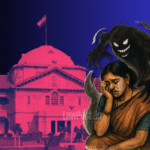Italian luxury fashion house Prada is facing legal fire in India over its alleged appropriation of the iconic Kolhapuri chappal. A Public Interest Litigation (PIL) has been filed in the Bombay High Court, accusing the brand of cultural misappropriation, misrepresentation, and unauthorised commercial exploitation of a Geographical Indication (GI)-tagged product.
Filed on July 2 by Ganesh S Hingmire, a noted advocate specialising in Intellectual Property Rights, the PIL objects to the footwear showcased at the Prada Men’s 2026 Fashion Show in Milan on June 22. The sandals in question, priced at over ₹1 lakh per pair and labelled ‘Toe Ring Sandals’ by Prada, are said to bear striking stylistic and cultural resemblance to Kolhapuri chappals—traditional leather footwear with GI recognition under the Geographical Indications of Goods (Registration and Protection) Act, 1999.
The plea alleges that Prada has rebranded the centuries-old Indian design under a European luxury label without offering due credit or compensation to the artisans who have preserved the craft for generations.
“This Public Interest Litigation seeks directions and appropriate reliefs, including an injunction and damages/compensation for the unauthorised commercialisation of a GI-tagged product, which has caused significant harm to the community traditionally associated with it, particularly in Maharashtra State,” the PIL reads, as reported by ANI.
In response to mounting backlash, Prada’s Corporate Social Responsibility Head Lorenzo Bertelli issued a statement acknowledging the Indian inspiration behind the sandals. “We acknowledge that the sandals featured in the recent Prada Men’s 2026 Fashion Show are inspired by traditional Indian handcrafted footwear, with a centuries-old heritage. We deeply recognise the cultural significance of such Indian craftsmanship,” Bertelli said.
However, the petition argues that Prada’s recognition came only after widespread online criticism, and that it lacks sincerity. “The brand has not yet issued any formal apology along with any damages, compensation and entitled remedy and the statement appears to be merely a superficial attempt to deflect criticism,” the plea states.
The PIL seeks not only a public apology and compensation for the affected artisan communities but also calls on the court to direct the central government to enforce stronger protections for traditional Indian crafts, especially those covered under GI tags, to prevent misuse by international brands.
The matter is expected to trigger a wider debate on cultural appropriation, global fashion ethics, and the legal safeguards required to protect India’s rich artisanal heritage in the age of luxury rebranding.








